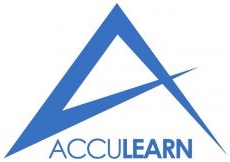Introduction
The late delivery of projects have become the scourge of project professionals worldwide. Countless numbers of projects undertaken by organizations in the private and public sectors significantly overrun the project schedule and budget, and as a consequence fail to achieve the organization’s financial and strategic objectives, often with sizable increases in costs and with substantial financial losses to the organization. Why?
This is due mainly to the failure of many project professionals to successfully apply the tools and techniques of modern project planning, scheduling and control to their projects. Likewise, the development of reliable cost estimates during the design and early conceptual stages of a proposed project are of critical importance to the success of the project.
The decision to proceed with a project is often based almost exclusively on early conceptual cost estimates, and these estimates provide the basis for the cash flow projections and forecasts used during the project feasibility study. Unreliable cost estimates can result in significant cost overruns later in the project life when it is too late to contain them.
In addition to the potential financial losses suffered by the organization, many such projects subsequently fail to deliver the required quality of outcomes intended for the project as a direct consequence of poor estimating. Budgeting inaccuracies inevitably result in lower quality workmanship and materials.
The estimating techniques and processes covered in this course will provide delegates with the necessary skills to forecast accurately the anticipated costs of projects with a focus on budget estimates, estimates for pre-construction services, estimating contractor and sub-contractor work, estimating general conditions, pricing self-performed work, estimating negotiated contracts, and performing lump sum and unit-price estimates.
This brand new day course will significantly enhance the skills and knowledge of delegates and improve their ability to properly plan and schedule their projects, as well as perform estimates at both the conceptual and detailed levels, and to compare feasible alternatives quickly and efficiently.
Objectives
- Gain knowledge of techniques used in resource planning and control.
- Understand the time-cost trade-offs.
- Identify risk sources and minimize their impact and learn how to sustain project momentum.
- Learn how to administer project documentation and reporting.
- Develop effective performance monitoring and control systems.
- Gain knowledge of techniques used in project estimating, from the conceptual stage to the final detailed estimate
- Understand the different types of estimates used to accurately and progressively estimate project costs
- Understand the different types of contracts based on the distribution of risk between contracting parties
- Effectively apply incentive arrangements to get the best results from the contract
Content
Day One
Project Scope Planning and Definitions (Fundamentals)
- Introduction to Project Management
- Scope Planning
- Work Packages
- Scope Execution Plan
- Triple Constraints – Time Cost, Scope
- Project Delivery Systems
Day Two
Project Schedule Planning
- Economic Evaluation and impact of interest rates
- Work Breakdown Structures (WBS)
- Project Estimating
- Gantt Chart – Schedule Baseline
- Precedence Network Diagramming
- Building schedule logic
- What is float?
Day Three
Critical Path and Network Scheduling
- Activity development
- Network calculations
- Forward and backward pass
- Lead and Lag Scheduling
- Program Evaluation and Review Technique (PERT)
- Time-Cost-Scope Trade-off
Day Four
Advanced Planning Methods and Project Control
- Preparing a Line of Balance Schedule (LSM)
- Project Control Systems
- Earned Value Analysis
- Earned Value Reporting
- Resource Allocation Algorithms for Resource Prioritization
- Time and Cost Tradeoff
Day Five
Progress Reporting and Schedule Acceleration
- Progress Tracking and Monitoring
- Options for Accelerating the Schedule
- Crashing the Schedule – How?
- Lean Approaches
Day Six
Cost Estimating Basics
- Basic Project Management definitions
- Cost Selection Methods
- Typical project terminology & setting up for success
- Project cost management
- Cost estimation
- Cost Budgeting
- Cost Control
- Triple Constraints – Time, Cost, Scope
- Understanding project management inputs to cost estimation
- Resource and Cost Allocation
- Workshop
Day Seven
Developing The Project Budget & Cost Control
- Project management inputs to cost budgeting
- Resource Requirements
- Direct & Indirect Project Costs
- PERT, Probability and Standard Deviation Formulae
- Calculating the Standard Deviation
- Earned Value Control Process
- Schedule Variances
- Earned Value Analysis
- Earned Value Reporting
- Project Variance Analysis and Quantification
- Schedule Performance Index (SPI)
- Cost Performance Index (CPI)
- Estimate At Completion (EAC)
- Estimate To Complete (ETC)
Day Eight
Managing Cost Risk
- Risk Analysis & Management
- Risk Identification
- Qualitative Risk Analysis
- Quantitative Risk Analysis
- Risk & Probability Matrix
- Risk Response Strategy
- Contingency Reserve
- Watch List
- Acceptance Strategy
- The S-Curve for Risk & for Cost
- Workshop
Day Nine
Contract Types & Compensation Arrangements
- Procurement Management
- Make or Buy Analysis
- Procurement documents
- Contract types
- Risk distribution in contracting
- Project risk profiles
- Contract types according to risk distribution
- Fixed Price Contracts
- Firm Fixed Price
- Fixed Price with Economic Adjustment
- Incentive Contracts
- Fixed Price Incentive
- Cost Plus Incentive
- Cost-Plus Contracts
- Cost Reimbursement
- Cost Plus Award Fee
- Cost Plus Fixed Fee
- Time-and-Materials
- Workshop
Day Ten
Cost of Quality
- Quality Planning & Assurance
- Quality Control
- Benchmarking
- Pareto Analysis
- Cause & Effect – Fishbone
- Control Chart
- Quality & Grade
- Workshop



